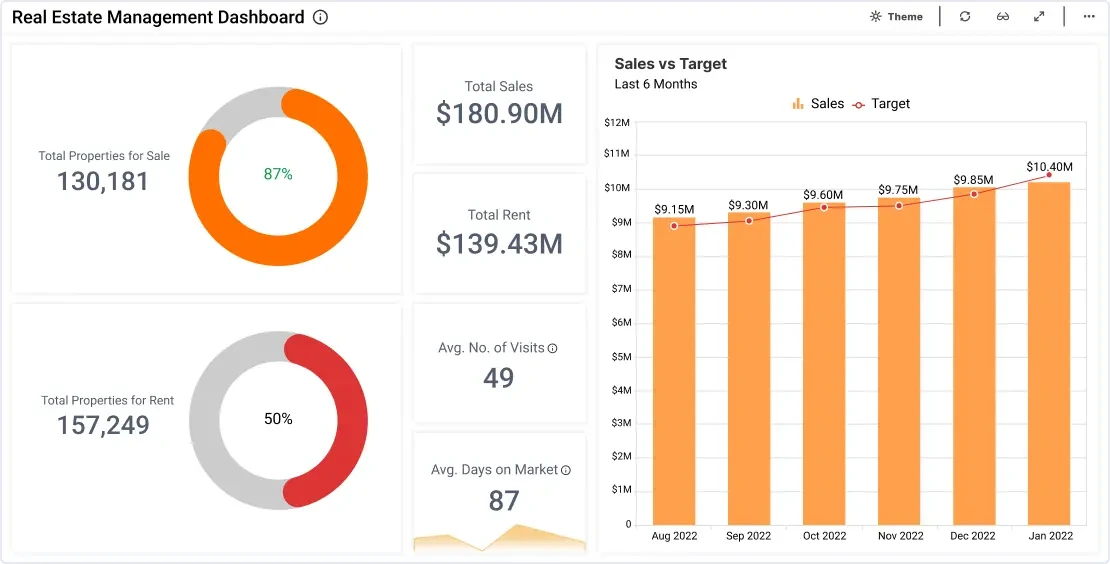6 Varieties of Home and Real Estate Software to Explore

The real estate industry is constantly evolving, and technology plays a crucial role in streamlining processes, enhancing efficiency, and improving the overall experience for both professionals and clients. In this comprehensive guide, we’ll explore six essential types of home and real estate software that can empower agents, brokers, property managers, and homeowners alike.
1. CRM Software for Real Estate Agents: Streamlining Client Relationships

Customer Relationship Management (CRM) software is designed to help real estate agents manage leads, track client interactions, and automate communication. It serves as a centralized hub for storing client information, scheduling appointments, sending personalized emails, and tracking deals.
- Key Features:
- Lead management and tracking
- Contact management
- Email marketing and automation
- Calendar and appointment scheduling
- Deal tracking and pipeline management
2. Real Estate Transaction Management Software: Simplifying Complex Processes

Real estate transactions involve numerous documents, deadlines, and complex processes. Transaction management software simplifies these tasks by providing a centralized platform for managing documents, tracking deadlines, and facilitating communication between all parties involved.
- Key Features:
- Document management and e-signatures
- Task management and deadline tracking
- Communication tools for agents, clients, and other parties
- Compliance and risk management features
3. Home Design and Planning Applications: Visualizing Creative Possibilities
Whether you’re a homeowner planning a renovation or a real estate agent showcasing potential property improvements, home design and planning applications offer powerful tools for visualizing design ideas. These applications allow you to create 3D models, experiment with different layouts, and even virtually stage properties.
- Key Features:
- 3D modeling and floor plan creation
- Interior and exterior design tools
- Virtual staging and furniture placement
- Cost estimation and budgeting features
4. Virtual Touring Platforms for Enhanced Property Showcasing
Virtual tours have become increasingly popular, especially in the wake of the COVID-19 pandemic. These platforms allow potential buyers to explore properties remotely, providing a more immersive experience than traditional photos and videos. Virtual tours can also be used to showcase properties to international buyers or those who are unable to visit in person.
- Key Features:
- 360-degree panoramic views
- Interactive navigation
- Floor plans and dollhouse views
- Integration with MLS listings
5. Valuation and Analytics Tools to Power Investment Analysis

Real estate investment decisions require careful analysis of market trends, property values, and financial projections. Valuation and analytics tools provide investors with the data and insights they need to make informed decisions. These tools can help assess property values, analyze rental income potential, and forecast future market trends.
- Key Features:
- Comparative market analysis (CMA)
- Rental income analysis
- Property valuation tools
- Market trend forecasting
By leveraging these six types of home and real estate software, you can streamline your operations, enhance client experiences, and gain a competitive edge in the dynamic real estate market.
Table of Contents :
- Resolve HBO Service Errors 905, H, 100, 321, 420 and Playback Issues
- How to Remove or Change the Name of the Software Distribution Folder in Windows 10/11
- Download YouTube Captions: Save as Text and Video
- 6 Varieties of Home and Real Estate Software to Explore
- Becoming Proficient with Pivot Tables: The Comprehensive Guide for Excel Users

